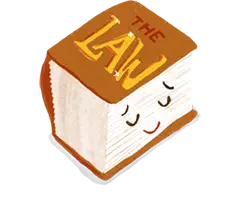Climate and energy
This page contains different parts of laws about Climate and energy, within the topic of Environment and resources.

Important laws about Climate and energy
Local Government Official Information and Meetings Act 1987
Land reports must include information about natural hazards like floods and earthquakes
44B: Natural hazard information to be included in land information memoranda
Local Government Official Information and Meetings Act 1987
Regional councils must share information about natural hazards with local councils to keep you safe.
44C: Regional council must provide territorial authority with natural hazard information
Telecommunications Act 2001
Rules for working together on the Ultra-fast Broadband Initiative
156AZC: Restrictive trade practices authorisations in respect of participation in Ultra-fast Broadband Initiative
Income Tax Act 2007
Money spent to stop or fix environmental damage from pollution or noise
Schedule 19: Expenditure in avoiding, remedying, or mitigating detrimental effects of discharge of contaminant or making of noise
Income Tax Act 2007
Selling or getting rid of emissions units is considered income and is taxed.
CB 36: Disposal of emissions units
Income Tax Act 2007
This section about pre-1990 forest land units in the emissions trading scheme has been removed
CW 3B: Pre-1990 forest land units: emissions trading scheme
Income Tax Act 2007
Tax rules for receiving free emissions units
DB 60: Acquisition of emissions units
Income Tax Act 2007
Using specific emissions units to meet obligations for post-1989 forest land
DB 61: Surrender of certain emissions units for post-1989 forest land emissions
Income Tax Act 2007
Rules for selling emission trading units cheaply no longer apply
GC 4B: Disposals of ETS units at below market value
Income Tax Act 2007
No tax deductions for certain emission-related costs in forestry
DB 60B: Liabilities for emissions
Income Tax Act 2007
Rules for selling or giving away emissions units
GC 3B: Disposals of emissions units
Income Tax Act 2007
How to value group assets affected by Canterbury earthquake while awaiting insurance
FZ 7: Valuation of group assets: insurance proceeds from Canterbury earthquake
More laws about Climate and energy
About this project
What is this project?
How do we do this?
Why is the law written like it is?
Should we use AI for this?
Is this information the actual law?
You can talk to Community Law or Citizen's Advice Bureau about your rights.
Remember that AI can make mistakes, and just reading the law isn't enough to understand how it could be used in court.




